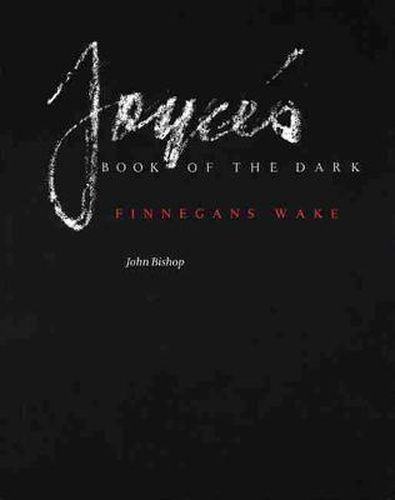Readings Newsletter
Become a Readings Member to make your shopping experience even easier.
Sign in or sign up for free!
You’re not far away from qualifying for FREE standard shipping within Australia
You’ve qualified for FREE standard shipping within Australia
The cart is loading…






This title is printed to order. This book may have been self-published. If so, we cannot guarantee the quality of the content. In the main most books will have gone through the editing process however some may not. We therefore suggest that you be aware of this before ordering this book. If in doubt check either the author or publisher’s details as we are unable to accept any returns unless they are faulty. Please contact us if you have any questions.
Finnegan’s Wake is perhaps the most difficult and wilfully obscure piece in all of modern literature, a book written in polyglottal puns that continues to baffle not only lay readers but, in large part, Joyceans as well. Here in 12 chapters, John Bishop aims to unravel Joyce’s obscurities and aims to reveal the Wake more clearly than anyone has done before. The greatest obstacle to the comprehension of Finnegan’s Wake , says Bishop, is the failure to believe that Joyce really meant what he said when he spoke of the book as being a reconstruction of the nocturnal life. As a consequence, readers have scrutinized the text with an unyielding literalism bent on finding a kind of meaning in every way antithetical to the kind of meaning embodied in dreams. Had Joyce made the Wake less obscure, says Bishop, he would have annihilated everything about the book that is most essential, most engaging, funny, and most profound. In taking seriously Joyce’s stated intention of writing a book about the night, Bishop shows how the determination to represent nocturnal experience accounts for the form, shape, direction, and language of Finnegan’s Wake . Although Bishop is not the first to appreciate the problems Joyce faced in his reconstruction of the night, no one has demonstrated more clearly and persuasively how Joyce’s creative imagination solved those problems, nor made a more convincing case for the profound significance of Joyce’s effort. Bishop relates the Wake to Freud, to Vico, and to the Egyptian Book of the Dead, shedding light throughout on such fundamental and complex subjects as dream theory and interpretation; thanatology; optics and phonetics; infancy, embryology, and gender; and sexuality and power.
$9.00 standard shipping within Australia
FREE standard shipping within Australia for orders over $100.00
Express & International shipping calculated at checkout
This title is printed to order. This book may have been self-published. If so, we cannot guarantee the quality of the content. In the main most books will have gone through the editing process however some may not. We therefore suggest that you be aware of this before ordering this book. If in doubt check either the author or publisher’s details as we are unable to accept any returns unless they are faulty. Please contact us if you have any questions.
Finnegan’s Wake is perhaps the most difficult and wilfully obscure piece in all of modern literature, a book written in polyglottal puns that continues to baffle not only lay readers but, in large part, Joyceans as well. Here in 12 chapters, John Bishop aims to unravel Joyce’s obscurities and aims to reveal the Wake more clearly than anyone has done before. The greatest obstacle to the comprehension of Finnegan’s Wake , says Bishop, is the failure to believe that Joyce really meant what he said when he spoke of the book as being a reconstruction of the nocturnal life. As a consequence, readers have scrutinized the text with an unyielding literalism bent on finding a kind of meaning in every way antithetical to the kind of meaning embodied in dreams. Had Joyce made the Wake less obscure, says Bishop, he would have annihilated everything about the book that is most essential, most engaging, funny, and most profound. In taking seriously Joyce’s stated intention of writing a book about the night, Bishop shows how the determination to represent nocturnal experience accounts for the form, shape, direction, and language of Finnegan’s Wake . Although Bishop is not the first to appreciate the problems Joyce faced in his reconstruction of the night, no one has demonstrated more clearly and persuasively how Joyce’s creative imagination solved those problems, nor made a more convincing case for the profound significance of Joyce’s effort. Bishop relates the Wake to Freud, to Vico, and to the Egyptian Book of the Dead, shedding light throughout on such fundamental and complex subjects as dream theory and interpretation; thanatology; optics and phonetics; infancy, embryology, and gender; and sexuality and power.